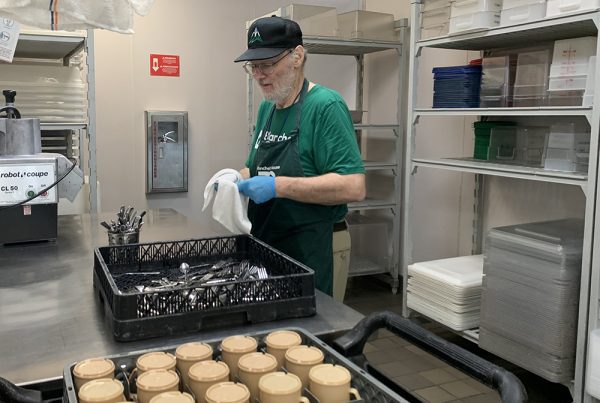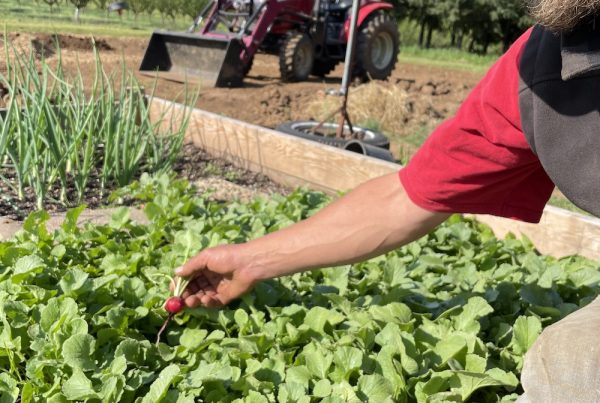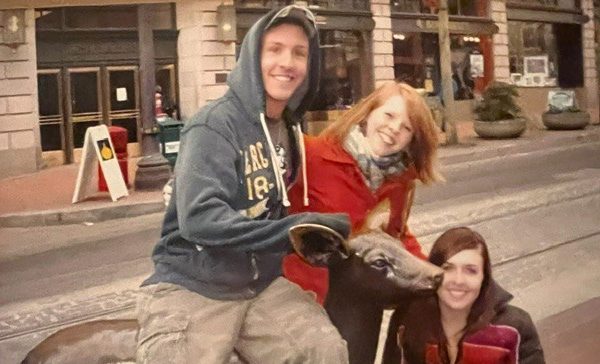After many attempts to gain long-lasting sobriety, Rob Moody, 57, needed something different–an unorthodox approach to addiction recovery. A friend recommended he try Blanchet Farm in rural Oregon, a free program occupying 62 acres outside Portland. For a city dweller, farm life would be new to Moody.
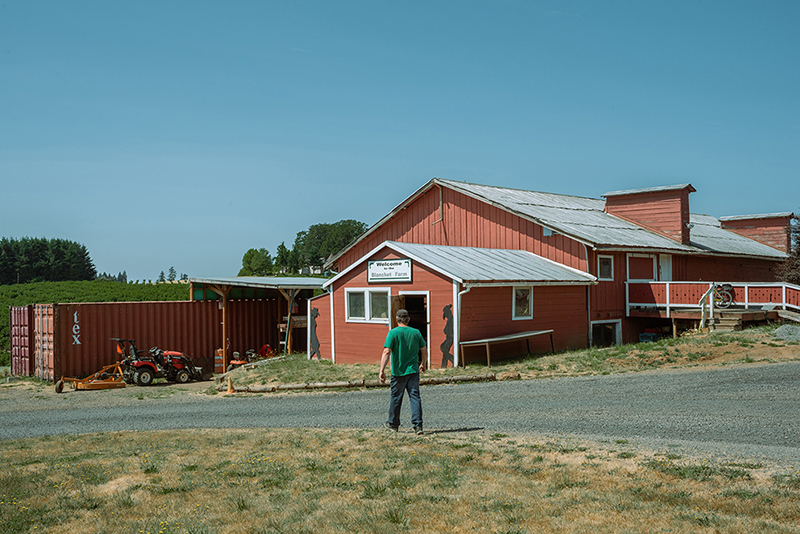
Blanchet Farm in rural Oregon. Photo by Kaveer Rai.
“I knew I needed to do something different,” Moody says. “For someone broken like me, four months in a treatment program wasn’t enough time. Inpatient treatment never worked for me with the writing curriculum.”
The initial months at Blanchet Farm were particularly grueling as he endured the withdrawal process from Methadone. Methadone users can experience post-acute withdrawal symptoms like depression, anxiety, difficulty sleeping, and poor concentration for up to two years. He found he was distracted from the symptoms. The farm’s hands-on approach to recovery engages participants in tasks like caring for chickens and pigs to help them regain a sense of purpose.
“I never thought I’d enjoy living out in the country. It started with the animals,” Moody says. “Walking the goats. I’d lie down for an hour in the trees watching the goats eat.”
In addition, Moody was able to find solace in making art. He transformed a room in a barn into an art studio where he created remarkable pieces.
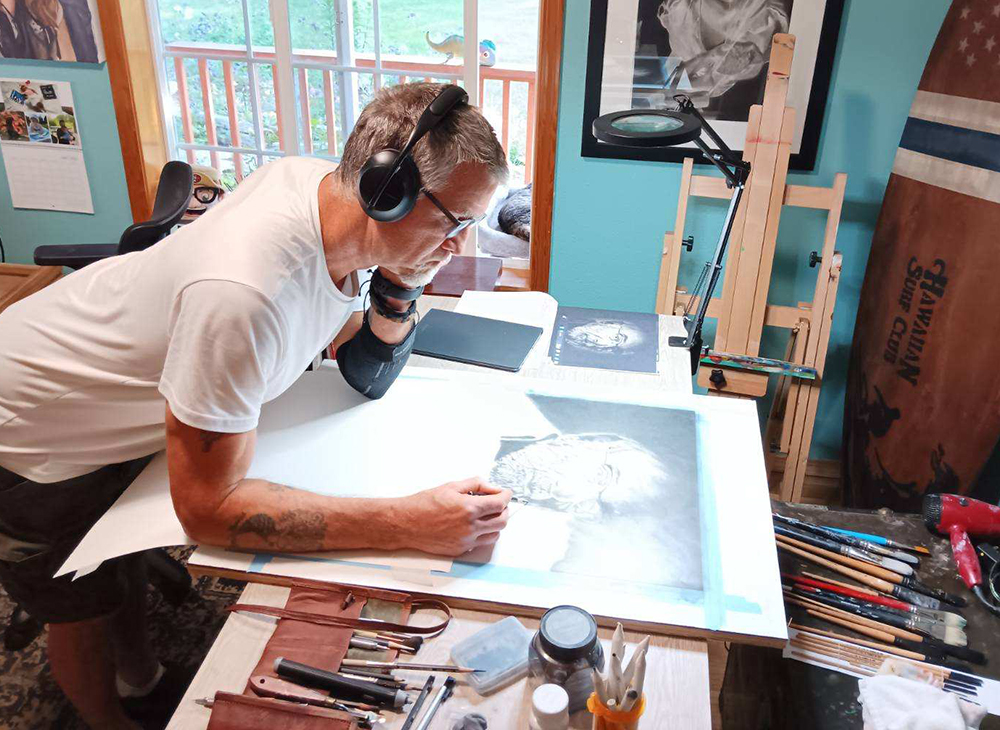
Rob Moody works on a drawing in his studio.
“After work, I would spend the rest of the day painting. I wasn’t sleeping because I was titrating off Methadone so I was putting out two to four pieces a night. It was just coming out of me,” he recalls. “If you look at all of the paintings I made then you’ll see a light illuminating from the center. Maybe it’s the spiritual waking people talk about it.”
For Moody and others, a traumatic childhood spent in and out of foster care led him to self-medicate with substances. He’d tried many times to quit using drugs including during stints in prison.
“Drugs work really well as an anti-depressant and for anti-anxiety, until they don’t,” he says.
Reflecting on his time at the farm, Moody expresses profound gratitude for the opportunity to rediscover forgotten aspects of his identity. He unveiled his concealed generosity, kindness, and empathy, traits he had never fully recognized before.
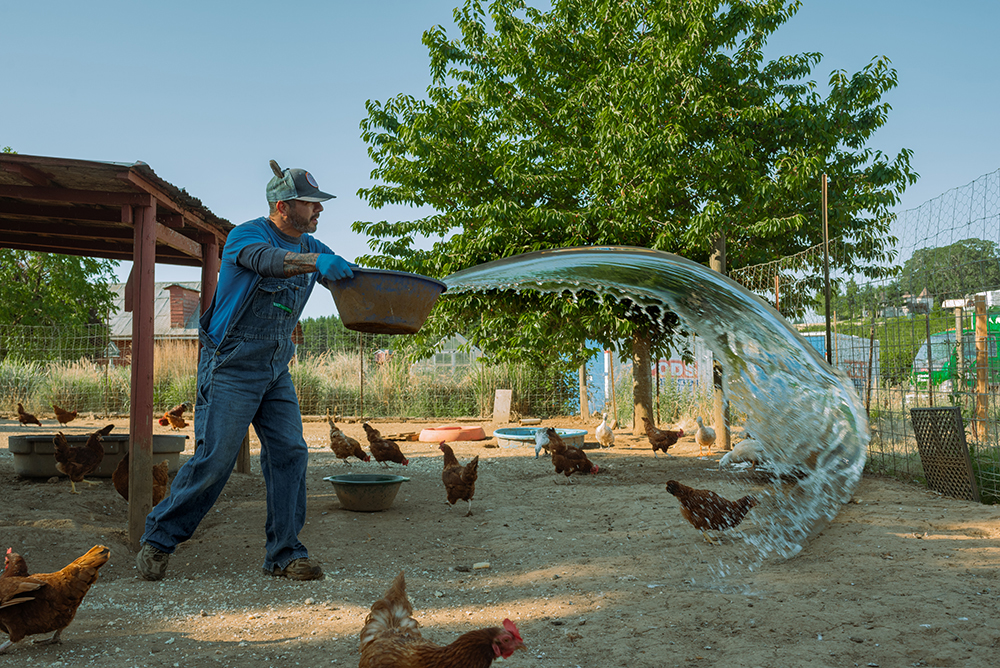
A resident of Blanchet Farm waters the chickens. Photo by Kaveer Rai.
“I think it was the connection. Everybody there was in the same boat. There was no judgment. Several guys asked me, ‘How do you do it? How are you happy day and after?’ Moody recalls. “One word it’s gratitude. Look around. Look at what you have here.”
Moody believes that it is his moral duty to improve his own life while positively impacting the lives of others. Driven by his transformation at the farm, he is pursuing a degree in psychology with a minor in art. He aspires to incorporate art therapy into his future career as a Certified Alcohol and Drug Counselor (CADC).
Moody’s dedication to helping others and giving back is a testament to the profound impact of programs like Blanchet Farm.
“The farm allowed me to pick up the pieces. It allowed me to discover pieces of myself that I didn’t know existed. Time to process,” he says. “Give yourself a chance.”
Blanchet Farm’s supportive environment and nurturing community have not only aided Moody in rebuilding his life but have also provided him with the means to become a catalyst for positive change in the lives of others.














